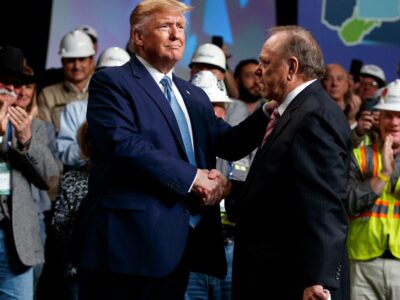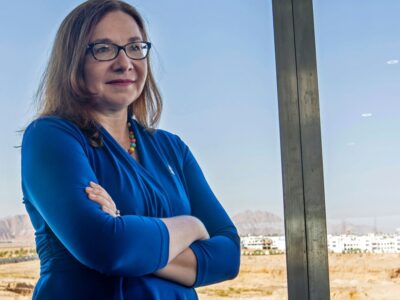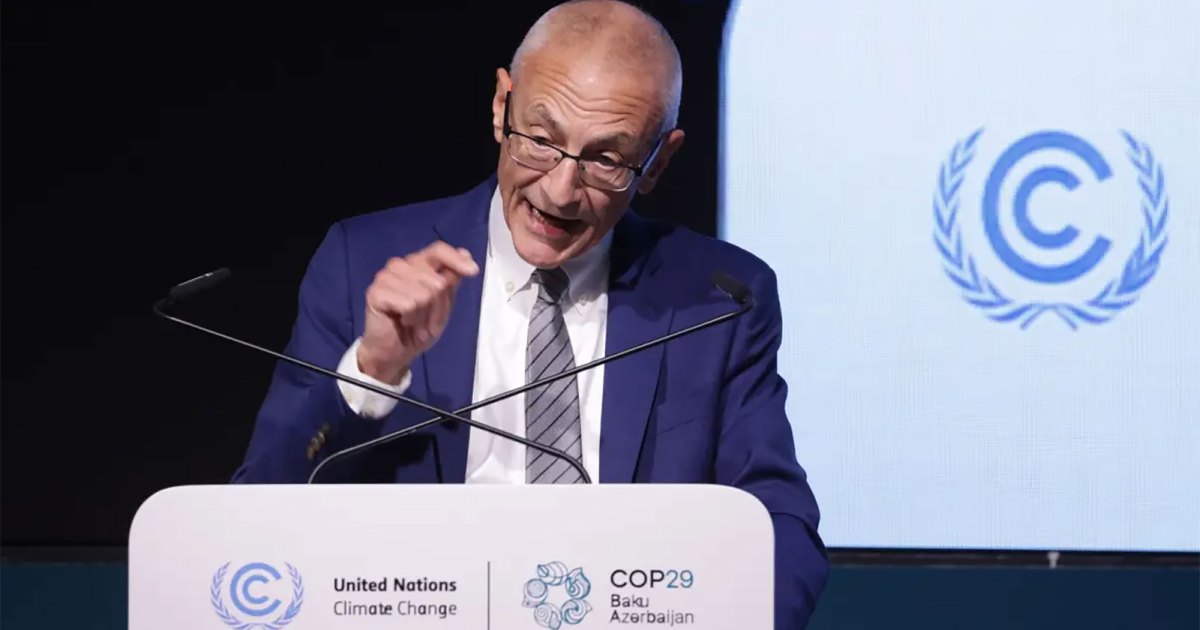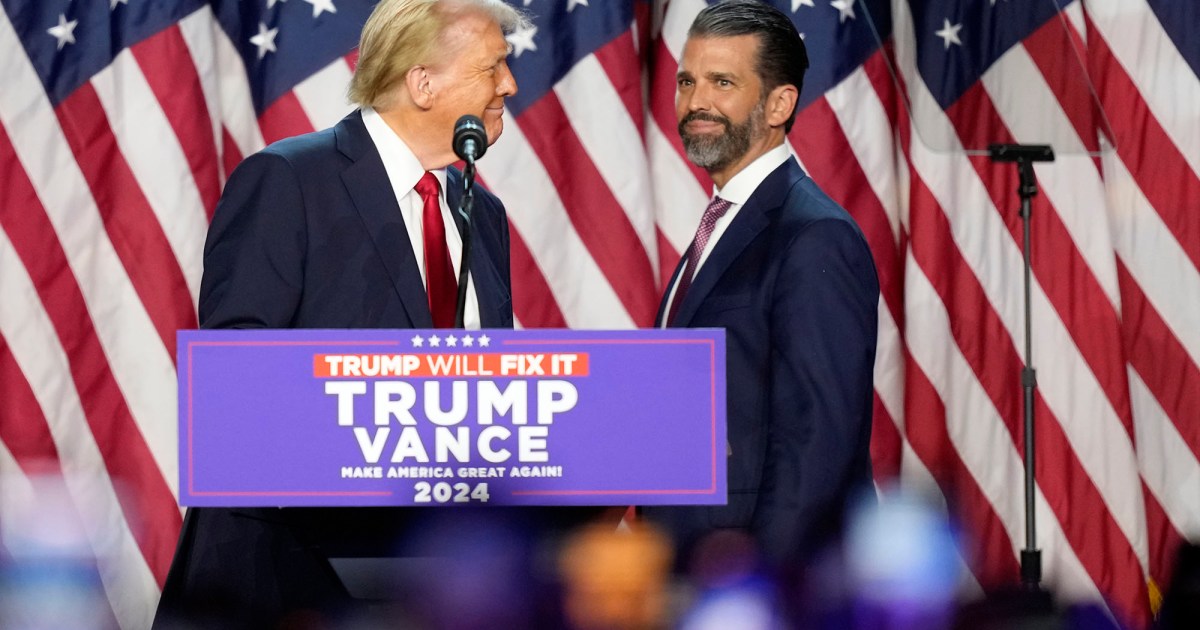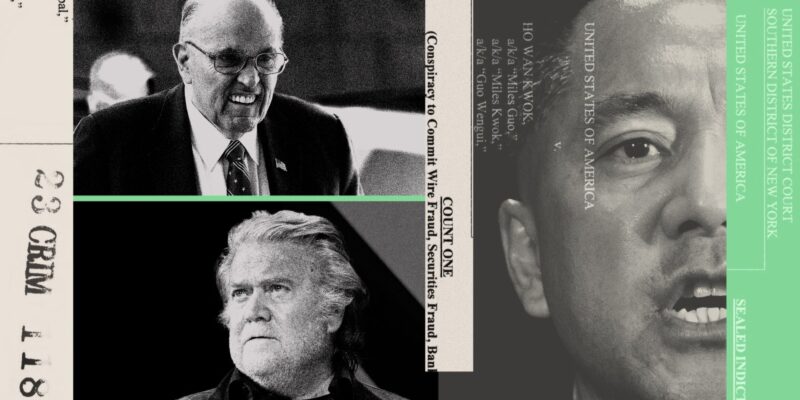
The trial of fugitive Chinese mogul Guo Wengui kicks off in New York Wednesday, as federal prosecutors prepare to lay out what they have called a “complex” conspiracy involving elaborate financial schemes, dozens of offshore accounts, and evidence translated from Mandarin. But the heart of the case is a simple and familiar American phenomenon: political grift—a confidence job in which a demagogic leader allegedly translated political passion into personal gain. If the case against Guo sounds a bit like what critics say about Donald Trump, that’s no coincidence. Guo’s rise was aided by some of the same people who have boosted the former president.
Guo grew up in China, made a fortune there through allegedly corrupt real estate maneuvers, and arrived in the United States in 2015 as a billionaire. Once in America, Guo built an eclectic empire of organizations, created a public brand as a leading critic of the Chinese Communist Party, and amassed large following of fellow Chinese emigres—people whose loyalty is reflected by their self-description as “ants.”
Guo is accused of leading a conspiracy in which he defrauded those supporters, who believed they were part of a mission to “take down the CCP,” to line his own pockets. After priming them with attacks on China’s government—along with wild conspiracy theories about covid, the 2020 election, Jews, and economic disaster—he hit them up for investments in a series of financial ventures, drawing in more than $1 billion, then allegedly hoarding most of the proceeds.
This alleged conspiracy was led by Guo, but it relied on the perception that he was both a leading opponent of the Chinese regime and a Trumpworld insider, privy to plans of the US government. Those claims were enabled particularly by Steve Bannon, the former Trump adviser, who prosecutors have labeled a “co-conspirator” in Guo’s plot, though Bannon has not been charged. Other Trumpworld figures who have taken money, jobs, or titles from Guo include Rudy Giuliani, Trump adviser Jason Miller, former White House aide Peter Navarro, Trump national security adviser Michael Flynn, Turning Point USA chief Charlie Kirk, and Trump campaign spokesperson Karoline Leavitt. Even the fabulist former Rep. George Santos got in on the action. None of these figures have been accused of legal wrongdoing in the Guo case.
After arriving in New York, Guo gained attention with purchases like a $67.5 million, 15-room penthouse residence on Central Park; a $30 million yacht; and a membership in Trump’s Mar-a-Lago club. But it was in 2017, as China began seeking Guo’s extradition to face criminal charges there, that Guo began publicly accusing some CCP figures of corruption. A few months into Guo’s campaign, waged in frequent YouTube videos and tweets, he applied for political asylum in the US. His efforts became more focus after he brought in Bannon, who Trump had just ousted from the White House, as an adviser.
By 2020, many of Guo’s followers had set up online clubs, based around the world, that worked to support him and advance his conspiratorial political claims. As Mother Jones has detailed, Guo also began using those clubs, which he called “farms,” to raise money, sending video solicitations to the groups with instructions on how to support his ventures.
The first was a “private stock offering” for GTV, a Chinese-language streaming and news platform. Guo guaranteed backers that they would make money. He also claimed that by investing with him, China’s top foe, they would help “take down the CCP.” These lies helped Guo raise nearly $500 million from supporters, the feds alleged. Many investors never received any stock or interest of any kind, the SEC later charged. Because the offering was not legally registered with the SEC, banks froze accounts that received money from the GTV victims, prosecutors say.
Guo’s response, according to charging documents, was to continue raising money for the venture by other means. He asked his fans to cough up fees of up to $50,000 to join a membership club, called “G|Clubs,” which marketing material described vaguely as offering “a gateway to carefully curated world-class products, services and experiences.” In reality, members received “few to no discernable membership benefits,” prosecutors said. But Guo also sent messages to supporters telling them that G|Clubs members could get discounted access to GTV stock. That was the real lure of “membership.”
Another investment scheme involved supposed crypto currencies. Guo in 2022 touted a product called HCoin, in part via a music video. He then claimed its value had increased 26,900 percent, for a fantastical total of $27 billion, after its release. That value, and various claims about the technology behind HCoin, was completely made up, prosecutors have said.
Prosecutors allege that Guo stole hundreds of millions of dollars his fans put up for these ventures, transferring funds into accounts he controlled and using the money to fund a lavish lifestyle for himself and family members that included a $3.5 million Ferrari, a $26 million mansion, the $30 million yacht, a $140,000 piano, and two $36,000 mattresses.
The Justice Department has said it will argue that this massive financial fraud was made possible by Guo’s public brand as an anti-CCP crusader. That brand was boosted by Guo’s Trumpworld allies, especially Bannon. The indictment against Guo dates the start of his conspiracy to 2018. That’s when Guo, with Bannon at his side, launched two nonprofit organizations, which they claimed would expose corruption in China. Guo said he was putting $100 million of his own funds into organizations. But that was not true. He never donated more than a fraction of that. Instead he relied on donations from fans to fund the groups. He also leveraged them as part of his con, prosecutors say.
Guo “used the nonprofit organizations to amass followers who were aligned with his purported campaign against the Chinese Communist Party and who were also inclined to believe [Guo’s] statements regarding investment and moneymaking opportunities,” Guo’s indictment said. Then Guo and others hit them up with “false and materially misleading information to promote these ‘opportunities’ and to defraud [Guo’s] followers and other victims.”
Bannon sat on the board of one of those nonprofits. He was also on the board of GTV, according to information sent to Guo fans soliciting their donations. Bannon led meetings in which Guo and his advisers, including two aides who were charged along with him, plotted how to continue raising money for Guo’s ventures, despite SEC scrutiny. “All I’m trying to do is get around securities law,” Bannon said during one meeting in 2020 on G|Clubs, as Mother Jones reported last month.
Bannon also relentlessly hyped Guo’s investment offerings. He seconded Guo’s claims that investments in the various companies would allow Guo fans to make money and attack the CCP. In 2021 he touted HCoin, with its preposterous valuation, as a “monumental” and “extraordinary” success.
Guo paid Bannon millions of dollars also gave Bannon use of a private plane, a Connecticut home, and his yacht, where Bannon was living when he was arrested in 2020 on separate federal charges for allegedly defrauding donors who gave money to build a wall along the US southern border. (Trump subsequently pardoned Bannon in that case; Bannon is slated to go on trial later this year on similar charges in New York state court.)
In 2020, Bannon helped arrange for Guo to secretly funnel $100,000 to fund a legal effort to overturn Joe Biden’s electoral victory in Georgia, part of more than $500,000 Guo quietly spent in late 2020 to back “stop the steal” efforts.
That same year, Bannon had joined with Guo in launching what they called the New Federal State of China. This group claims to be a quasi-sovereign organization preparing to replace the Chinese government after its inevitable fall. Under a Republican president, Bannon has claimed, the United States might recognize the group as the legitimate government of China. That fantastical claim—coming from a purported Trump confidant—suggested to Guo’s fans that their investments in companies linked to NFSC would grow. Guo even suggested that HCoin, as the currency of the New Federal State, would become China’s monetary unit.
These unlikely claims got a boost when Navarro, a former top Trump adviser involved in trade disputes with China, signed on as a supposed “international ambassador” for the group. Navarro, who is currently serving a jail sentence for contempt of Congress, has not answered questions about whether he was paid for that role.
The New Federal State has held annual galas since its founding. In 2021, Giuliani and Flynn spoke at the event, backing conspiracy theories about China’s supposed role in influencing the 2020 election. Each billed the group $50,000 for appearing. At the group’s 2023 gathering, Santos and far-right Reps. Andy Ogles (R-Tenn.) and Paul Gosar (R-Ariz.) embraced Guo’s movement. (Gosar memorably accused China of using Tik-Tok to promote “hedonism and mindless dancing.”) The congressmen later received substantial infusions of campaign donations from Guo supporters.
Prosecutors have also said that Guo, at least until his arrest, controlled Gettr, a right-leaning social media app modeled on Twitter. Launched in 2021, Gettr, under Guo’s direct instructions, attempted to downplay his influence and instead highlighted its connections to Trump. Gettr hired Miller—the former Trump aide who has since rejoined Trump’s campaign team. A person familiar with Miller’s thinking told Mother Jones last year that Miller was assured that Guo did not run the company. Miller was paid $750,000 a year by Gettr, along with a $250,000 annual bonus, court filings indicate.
Gettr has also acknowledged paying prominent right-wing figures—including Kirk, Dinesh D’Souza, Jack Posobiec, and Andy Ngo—to use the site.
Guo’s trial is expected to last up to two months. Though it will focus on details of Guo’s finances, his deep involvement with Trumpworld means the proceedings will likely shed new light on how, even as Guo was allegedly conning his supporters out of huge sums of money, powerful political figures were cashing in.


